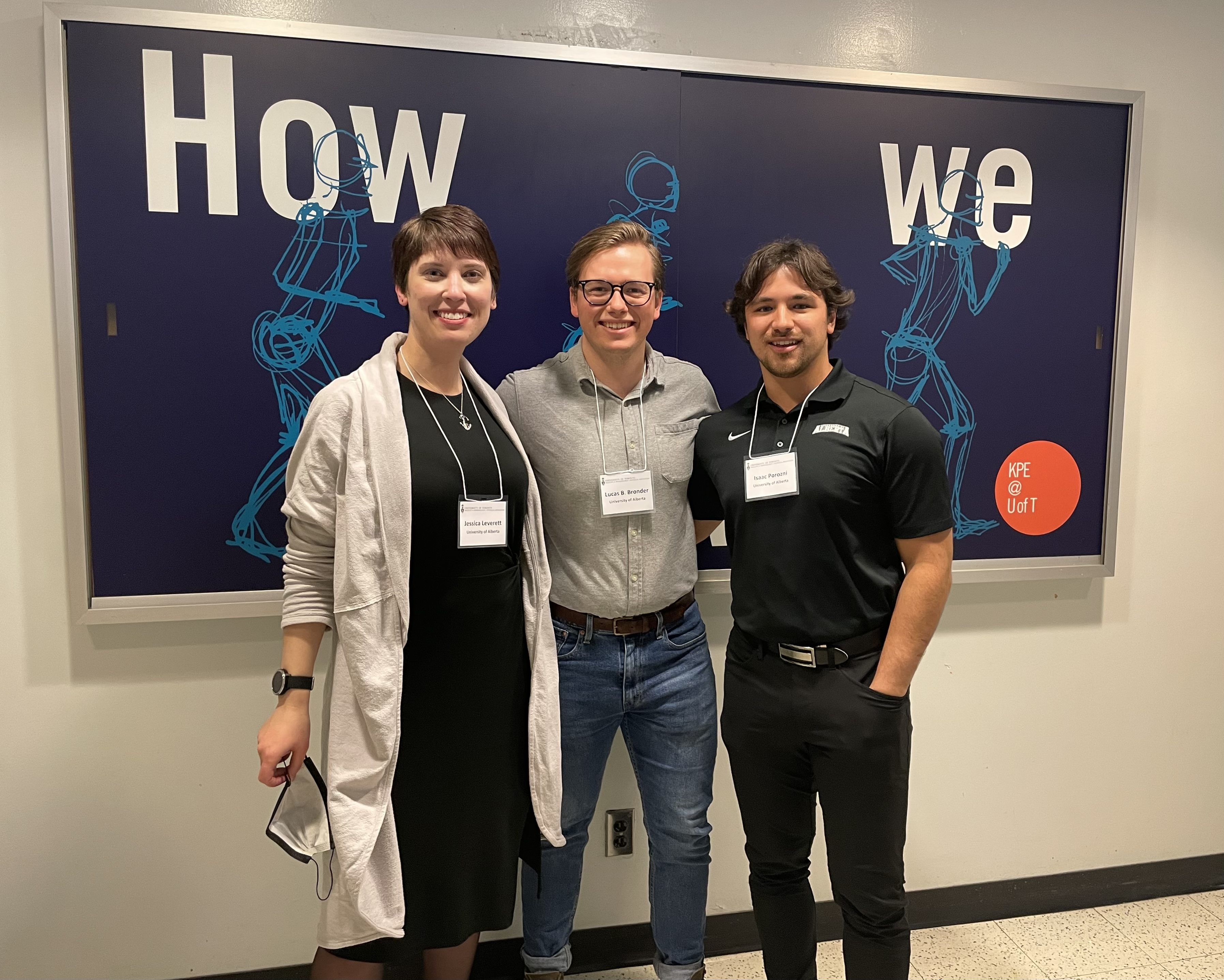Research
KSR student Jessica Leverett wins provincial poster competition and is ready for the next step in a promising career
Shirley Wilfong-Pritchard - 19 May 2022

From left: KSR student Jessica Leverett and research team members Lucas Bonder and Isaac Porozni after presenting at a University of Toronto research conference
Leverett first went to university at age 17, but wouldn’t recommend that decision to everyone. “I wish people could take a couple years off to travel, get some really awful jobs, learn who you are and what you don’t like, so you can figure out what you do like a little easier.”
It’s not always easy returning to school as a mature student either, and in Leverett’s case, it meant moving back in with her parents as she went through a divorce in her first year. While her friends were starting careers and families, she was starting over.
Leverett started in kinesiology with an eye to entering medical school afterwards. But once she started in the program, she realized medical research was just as important as that one-on-one doctor-patient relationship. “If you can be that person to not only create the research but also disseminate it, you might help more people.”
With her best-poster win at this year’s Research Revealed!, Leverett beat out competitors from the universities of Alberta, Calgary and Lethbridge and Mount Royal University.
“It was completely unexpected. Everybody else did such a good job. When my name was called at the end of the day, I sat there shell shocked for a little bit,” says Leverett. “It’s nice to know that a student-led project could win a poster competition. It was a confidence boost—I actually do sort of know what I’m doing.”
Leverett’s project was about kinesthesia—how you know your body is moving through space—and focused on understanding movement in the hand. In her study, electrical stimulation of the hand produced illusions of movement, although not always in the predicted direction, and illusory amplitude was larger as the stimulation increased. Leverett hopes her research will help with rehabilitation for people who have decreased sensory information.
Leverett and her research team also presented at the University of Toronto, where they discovered how fortunate they were to have had their practicum at the U of A. Unlike students from other parts of Canada, they created their own research project—they didn’t simply work on studies that had already been started by other researchers. Being involved in the entire life cycle of a project meant having a solid understanding of what they were doing and why. Leverett says, “We were intimately aware of our project—and our weaknesses—because it was so new. That was a really good experience.”
As a KSR teaching assistant, Leverett tells her students, “Find what interests you and talk to your profs about it. They’ll open up this whole other world that you didn’t know existed. There are so many projects in so many areas. You have no idea of all the amazing things this university is doing. Make friends, make a community and talk to your profs.”
What’s next for Leverett? This summer she’ll be working with her supervisor Dave Collins on researching electrical stimulation to the spinal cord. She hopes the results will have long-term effects on regaining movement for people suffering from paralysis, spinal cord injuries or other neurological impairments. And in September she begins her master’s degree in science in kinesiology at the U of A. “I’m excited to see where this goes,” says Leverett.
Leverett feels grateful for the past four years and the opportunities she’s had at the U of A. When her friends tell her they’re thinking about going back to school, her advice is, “You absolutely should do it. You might even find out about a program you didn’t know existed.”